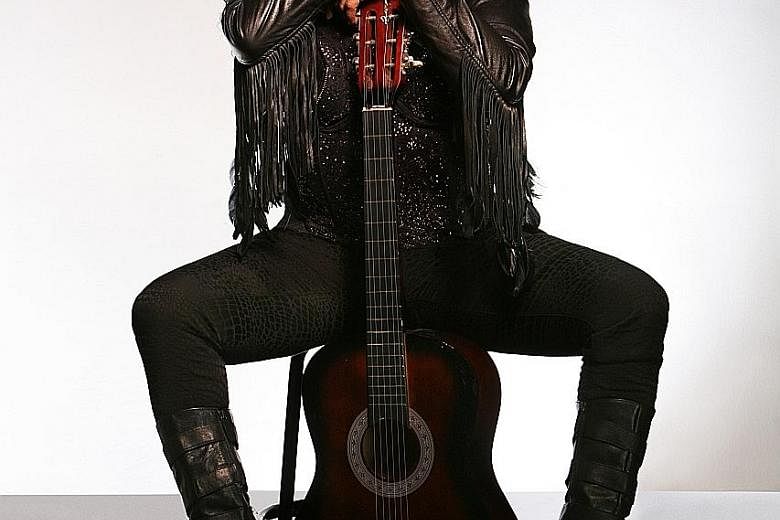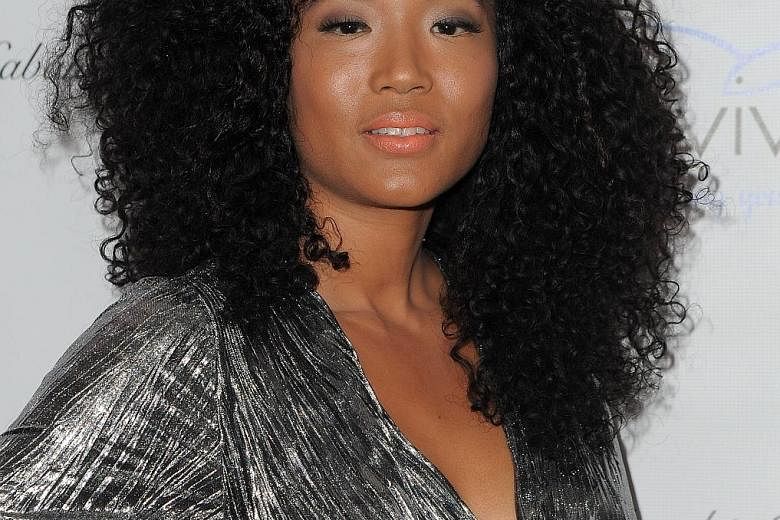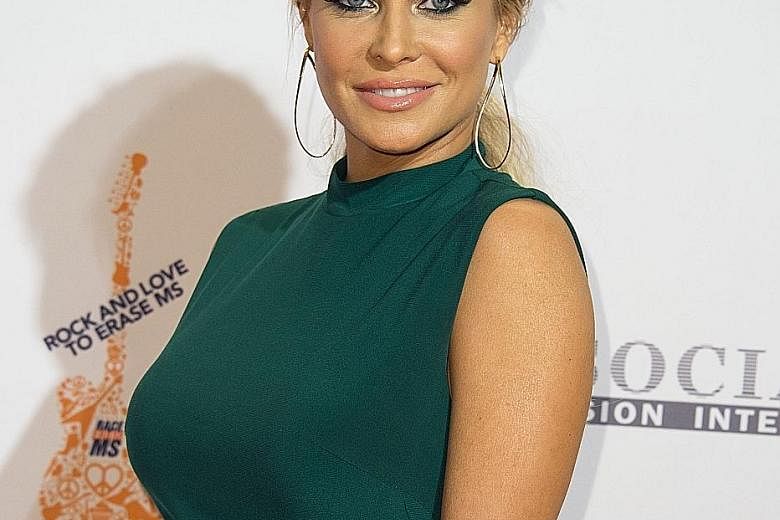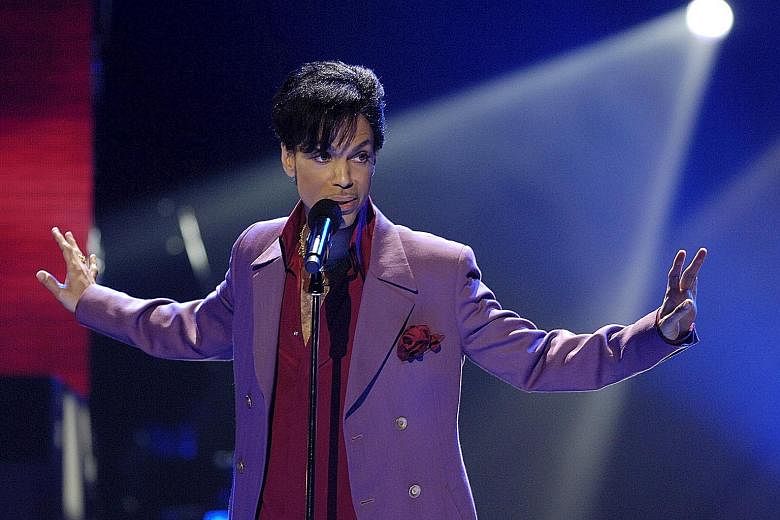NEW YORK • Prince may not have had biological children, but he is survived by a vast number of proteges, who found in the late pop icon a mentor like few others.
For dozens of artists, most of them women and many plucked from obscurity, Prince became a cross between a producer and a father figure who would invite them into his inner sanctum, the Paisley Park complex in Minnesota.
The Purple One, who suddenly died last week at age 57, was legendary for his stamina and capable of playing virtually every instrument on his own.
But he nonetheless delighted in working with lesser-known musicians, some of whom would perform in his back-up bands or side projects such as The Revolution, Apollonia 6 and The Family.
Artists who saw their careers rise or be revived thanks to Prince include pop singers Sheila E. and Sheena Easton, "Queen of Funk" Chaka Khan, R&B great Mavis Staples and dancer-turned-singer- turned-model Carmen Electra.
The prolific Prince also wrote hits popularised by other artists - including Sinead O'Connor's Nothing Compares 2 U and The Bangles' Manic Monday - but with most of his proteges, he appeared to rejoice in a backseat production role rather than pushing his own sound.
Ingrid Chavez, a poet and songwriter, met Prince at a bar in 1987 when she was living in Minneapolis and shared her writing with him. She said he contacted her a few nights later.
"He was like, 'I have a studio I want you to go in and produce something'," she said. "I came out with something that he thought was really strange, but it was uniquely me and he knew that I did what I said that I do," she said.
Chavez soon appeared on Prince's Lovesexy album on tracks including Alphabet Street and portrayed the pop star's love interest in the 1990 movie Graffiti Bridge, a sequel to the classic Purple Rain. "It was surprising. I had never done any acting and I have never done any acting after that," she said with a laugh.
As for her own work, Chavez in 1991 released through Paisley Park Records an album of spoken word - true to her artistic wishes but going against pop formulas.
So why did one of the era's most celebrated musicians spend so much time with little-known artists? For Chavez, Prince simply enjoyed making music and understood the deep gratification of finishing a recording.
"It's kind of silly sounding, but I think he enjoyed seeing people's dreams come true, if he thought you had enough potential and drive and you believed in yourself," she said.
Chavez, whose credits include co-writing Madonna's erotic Justify My Love, plans a spoken-word album later this year on the 25th anniversary of her work with Prince and said she was "completely devastated" he would not be there.
"In my heart, it will be my little record that I wish he could have heard," she said.
Collaborations are not rare in the music world, with hip-hop, in particular, full of tie-ups.
But Prince was unusual in the sheer extent to which he discovered and championed artists, many of them far from being household names.
In his final months, he would make weekly recommendations on streaming service Tidal, where he recently heaped praise on little- known soul singer Sidibe.
Prince, who defied conventional record releases, last year sent widely to reporters a free download of the debut album recorded at Paisley Park by R&B singer Judith Hill, whom he declared would become a superstar.
Hill, best known earlier as a contestant on the television show The Voice, wrote on Twitter after Prince's death that she felt "scared and alone".
Prince was not without critics. O'Connor had a notable feud with him, the details of which are contested. Wendy Melvoin, a guitarist with The Revolution, said Prince sincerely believed in the musical worth of his proteges, but added that many of them would not ordinarily have been able to sell records.
"Prince liked to be your saviour. He liked to promise the world to you and he liked to be the guy who could deliver that to you and make you feel bigger than life," she told Out magazine in 2009.
Prince's last back-up band was an all-female trio called 3rdeyegirl, whose drummer Hannah Welton is married to Joshua Welton, a co- producer and musician with Prince.
In an emotional tribute to Prince that she posted on Monday on social media, Welton said that Prince "loved love" and encouraged the married couple to spend maximum time together.
"Prince quickly became more than just 'the artist' to us. He wasn't our 'boss'. In fact, he didn't like it when people called him that.
"He was our GREAT friend. Our mentor. Our confidant. Our brother. And (he) even became somewhat like a protective father figure over us."
AGENCE FRANCE-PRESSE




